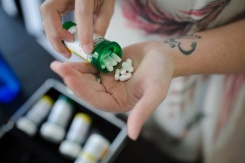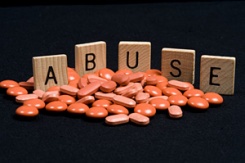Is Health Care a Right?
Atul Gawande
October 5, 2017
Is health care a right? The United States remains the only developed country in the world unable to come to agreement on an answer. Earlier this year, I was visiting Athens, Ohio, the town in the Appalachian foothills where I grew up. The battle over whether to repeal, replace, or repair the Affordable Care Act raged then, as it continues to rage now. So I began asking people whether they thought that health care was a right. The responses were always interesting.
FDA Takes Important Steps to Stem the Tide of Opioid Misuse and Abuse
FDA Voice
October 5, 2017
America is awash in immediate-release (IR) opioids. About 90 percent of all opioid pain medications prescribed – or 160 million prescriptions a year – are for IR formulations like hydrocodone and acetaminophen or oxycodone and acetaminophen combinations. Many people who are currently addicted to opioids became medically addicted. Their first exposure to opioids was from a legal prescription, and for many, that prescription was written for an IR formulation of these drugs. Many addicted patients may then move on to higher dose formulations or more accessible illegal street drugs.
White House Grants BMC $350,000 for Opioid Abuse Work
Jamie Ducharme
October 5, 2017
The Department of Health and Human Services’ (HHS) Office of Minority Health announced 15 new grants, totaling $5 million, going to health organizations working to fight opioid abuse, obesity, and serious mental illness. The awards were given through the Empowered Communities Initiative, which aims to boost the health of minority and underserved populations in areas struggling with those public health issues.
Where have all the workers gone? An inquiry into the decline of the U.S. labor force participation rate
Alan B. Krueger
September 13, 2017
In “Where have all the workers gone? An inquiry into the decline of the U.S. labor force participation rate” (PDF), Princeton University’s Alan Krueger examines the labor force implications of the opioid epidemic on a local and national level.
Read more here: https://www.brookings.edu/bpea-articles/where-have-all-the-workers-gone-an-inquiry-into-the-decline-of-the-u-s-labor-force-participation-rate/
Opioid task force's recommendations to combat Tennessee epidemic: More TBI agents, prescription limits
Anita Wadhwani
September 13, 2017
A legislative task force released its recommendations on combating Tennessee's opioid epidemic Wednesday, issuing nearly two dozen recommendations to address what one lawmaker said could be "a mass casualty event in Tennessee."
Read more here: http://www.tennessean.com/story/news/2017/09/06/opioid-task-force-recommendations-combat-tennessee-crisis-more-tbi-agents-prescription-limits/637637001/
Neonatal facilities increasingly use donated breast milk to save premature babies
Michael Alison Chandler
September 13, 2017
A growing body of research shows that human milk carries long-term benefits for premature infants and can be lifesaving, but it’s often hard for mothers of premature infants to produce enough. Historically NICUs have supplemented feedings with formula, but now they are increasingly looking to milk sharing — a practice with roots in an ancient tradition of wet nursing — as the nutritional vanguard for babies who are born too soon.
JAMA Forum: Community-Based Prevention and Strategies for the Opioid Crisis
HOWARD KOH, MD, MPH
August 31, 2017
Solving the unrelenting opioid crisis has become a pressing national priority. As evidence, the President’s Commission on Combating Drug Addiction and the Opioid Crisis recently urged President Trump to declare “a national emergency under either the Public Health Service Act or the Stafford Act.” Critical to future progress will be leveraging the full resources of the community—in partnership with health professionals—to prevent misuse, addiction, and death.
Newborns' hospital care quality may be tied to race
Andrew M. Seaman
August 31, 2017
(Reuters Health) - The quality of care provided to critically ill newborns is linked with multiple factors, including - in some hospitals - the infants’ race, according to a study from California.
Researchers found that in some neonatal intensive care units (NICUs), minority newborns received worse care than white children - but the opposite was true at other facilities.
Why hasn’t the White House declared a state of emergency over the opioid crisis?
POLITICO STAFF
August 31, 2017
Speaking from Bedminster, New Jersey, in early August, President Donald Trump vowed to formally dub the U.S. opioid crisis a “national emergency.”
But nearly a month later, the president has yet to officially declare a state of emergency — a move that would enable the federal government to pump funds into addressing the drug epidemic.
Read more here: http://www.politico.com/story/2017/08/30/trump-opioid-crisis-women-rule-podcast-242138










